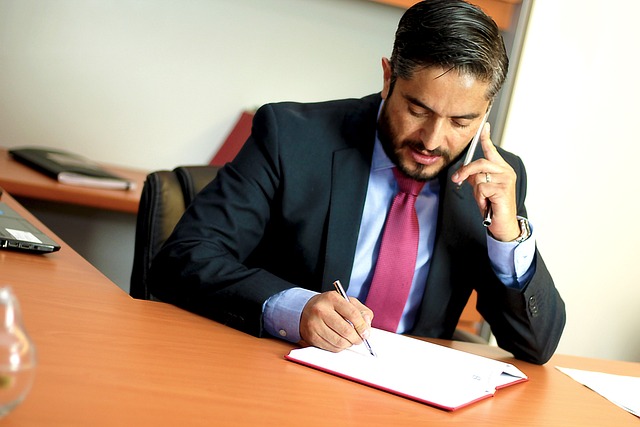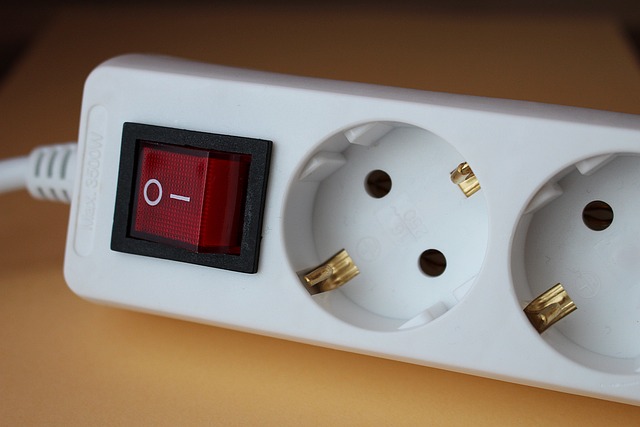When dealing with a Power of Attorney (PoA) in the UK, it's crucial to follow the correct legal procedures and ensure that your PoA document is accurately translated into English by specialized UK translation services. This guarantees that the document will be recognized and enforceable both within the UK and across international borders. The translation must capture the precise intent of the principal and comply with British legal standards, which is where expert translators with knowledge in legal documentation become essential. Whether for financial, health, or property decisions, a PoA empowers an attorney to act on your behalf, but choosing the right type of PoA and clearly defining its powers are key to preventing future misunderstandings or disputes. Regular updates to your PoA are necessary due to evolving laws, and professional translation services are invaluable in ensuring that any language barriers do not impede your understanding or legal compliance. For international business transactions involving a UK PoA, these translation services are particularly important to maintain legal authority and navigate cross-border dealings efficiently.
Navigating the complexities of legal authorization in the UK necessitates a comprehensive understanding of Powers of Attorney (PoAs) and their role within UK law. This article delves into the intricacies of PoAs, from their creation and appointment to international considerations and translation services for seamless compliance. Whether you’re considering establishing a PoA domestically or dealing with cross-border legalities, this guide provides essential insights. We will explore the legal requirements for PoAs in the UK, key considerations for appointing an attorney, and the critical steps to ensure your legal affairs are managed according to UK standards, even from abroad. Additionally, we’ll address common pitfalls to avoid, the importance of professional advice, and how to manage international PoA documents effectively. With a focus on safeguarding financial interests and understanding the binding force of a UK PoA, this article is an indispensable resource for anyone looking to handle legal matters with precision and confidence within the UK’s legal framework.
- Understanding Powers of Attorney in the UK Context
- The Role and Types of Powers of Attorney in UK Law
- Legal Requirements for Creating a Power of Attorney in the UK
- Key Considerations When Appointing an Attorney in the UK
- International Considerations and UK Powers of Attorney
- Translating Powers of Attorney Documents for UK Compliance
- The Process of Registering a UK Power of Attorney Abroad
- The Importance of Professional UK Powers of Attorney Legal Advice
- Common Mistakes to Avoid in UK Powers of Attorney Setups
- Utilizing UK Powers of Attorney Translation Services for Global Efficiency
Understanding Powers of Attorney in the UK Context

In the United Kingdom, a Power of Attorney (PoA) is a legal document that allows one person (the ‘donee’) to make decisions on behalf of another (the ‘donor’) in specific or general situations. This legal instrument is crucial for individuals who wish to plan ahead and ensure that their personal and financial affairs are managed by someone they trust if they lose mental capacity or become unable to manage these matters themselves. The UK’s Powers of Attorney provide a structured approach to managing one’s affairs, which can be particularly important for those with international assets or connections, as it may intersect with the need for UK translation services to navigate legal documents across different languages and jurisdictions.
The PoA in the UK is not a static document; it can be general or limited by specific instructions, depending on the donor’s wishes and needs. A General Power of Attorney gives broad authority to manage financial affairs, while a Lasting Power of Attorney (LPA) is used for both financial decisions and personal welfare. The LPA has two types: one covers property and financial affairs, and the other deals with health and care decisions. It’s essential for individuals to understand the differences and choose the appropriate type for their situation. Additionally, those who require assistance in translating these legal documents or understanding the nuances of UK legal authorization laws may benefit from professional Powers of Attorney UK translation services, ensuring clarity and compliance across international borders. These services are indispensable for individuals and families with multinational interests, providing peace of mind that their legal intentions are accurately conveyed in the language and context required.
The Role and Types of Powers of Attorney in UK Law

In the United Kingdom, Powers of Attorney (PoAs) serve as critical legal instruments that enable individuals to appoint trusted persons or professionals to manage their affairs in the event they are unable to do so due to illness, injury, or other circumstances. These PoAs can be comprehensive, granting decision-making authority across various aspects such as financial, health, and welfare decisions. There are two primary types of PoAs under UK law: the General Power of Attorney and the Lasting Power of Attorney (LPA). The General Power is typically used for temporary periods when the principal expects to return to making decisions themselves, such as when going abroad or if they have a specific period of incapacity. On the other hand, an LPA is enduring and remains in effect even if the principal loses mental capacity. It can be subdivided into two: one for property and financial affairs, and another for personal welfare. UK translation services play a pivotal role in ensuring that non-native speakers or those who prefer to understand these legal documents in their own language can do so without any ambiguity. This is particularly important as PoAs involve complex decisions and it is crucial that the appointee fully understands their responsibilities, which can be facilitated through clear translation. By securing professional UK translation services for Powers of Attorney documents, individuals can have confidence that their chosen representatives will act in accordance with their wishes, regardless of language barriers.
Legal Requirements for Creating a Power of Attorney in the UK

In the United Kingdom, establishing a Power of Attorney involves adhering to specific legal requirements as outlined by the Office of the Public Guardian (OPG). The process begins with understanding the different types of Powers of Attorney available, including the ordinary Power of Attorney and the Lasting Power of Attorney (LPA). A LPA is particularly important as it allows an individual (‘the donor’) to appoint one or more people (‘attorneys’) to make decisions on their behalf in specific areas, such as property and financial affairs, or health and welfare, at a time when the donor may lack the capacity to do so. The UK translation services play a crucial role in this process for non-English speakers, ensuring that the legal documentation is accurately translated to facilitate understanding and compliance with the law. It is imperative that the criteria for mental capacity are met by the donor at the time of creation, and that the chosen attorneys fully understand their roles and responsibilities. The LPA must be registered with the OPG before it can be used, a step that officially records the appointment. This registration process also involves a fee and a proficiency check to ensure that the attorneys are capable of managing the affairs they have been entrusted with. By following these legal steps and utilizing professional translation services where necessary, individuals in the UK can ensure their Power of Attorney is legally sound and reflects their wishes accurately.
Key Considerations When Appointing an Attorney in the UK

When considering the appointment of an attorney under UK legal authorization laws, it is crucial to understand the extent of powers you are granting. The Office of the Public Guardian (OPG) regulates lasting powers of attorney (LPAs) in England and Wales, ensuring they are executed properly to avoid disputes later on. An LPA allows you to choose one or more individuals—attorneys—to make decisions on your behalf should you lose mental capacity. It’s a critical step in estate planning, and it requires careful selection of the attorney. Powers of Attorney UK translation services play a significant role for non-English speakers, translating legal documents accurately to ensure that all parties fully understand the terms and conditions. When selecting an attorney, consider their trustworthiness, ability to act in your best interests, and understanding of your personal wishes. Additionally, it’s important to discuss your preferences, values, and wishes with your chosen attorney to guide their decisions. This communication ensures that your attorney can make informed decisions that align with your intentions, even if you are no longer able to express those wishes yourself. Engaging professional Powers of Attorney UK translation services is advisable when there is a language barrier, ensuring that the legal documents and discussions are accurately conveyed, thereby maintaining the integrity of your estate plan.
International Considerations and UK Powers of Attorney

When individuals or entities operate within the United Kingdom, it is imperative to navigate the intricacies of legal frameworks, particularly those pertaining to Powers of Attorney (PoA). UK PoA legislation enables an individual (‘the donor’) to appoint one or more persons (‘attorneys’) to manage their financial affairs or health and welfare decisions should they lose mental capacity in the future. This legal instrument is a critical component of estate planning and personal asset management.
In the context of international considerations, it is crucial for UK-based entities and individuals with assets or property abroad to understand how UK PoA translates across jurisdictions. While a UK PoA is generally recognised in other common law countries, challenges may arise when dealing with civil law systems that have different legal structures for similar concepts. In such cases, the use of international coordination mechanisms and professional UK translation services becomes indispensable. These services ensure that the terms and conditions of a UK PoA are accurately conveyed in another language and adapted to conform with the laws of the foreign jurisdiction. This alignment is vital for attorneys to effectively act on behalf of the donor within a global context, underscoring the importance of a comprehensive understanding of cross-border legal practices related to Powers of Attorney.
Translating Powers of Attorney Documents for UK Compliance

When translating Powers of Attorney (PoA) documents for UK compliance, it is imperative to navigate the intricate legal framework that governs such instruments. The UK’s Office of the Public Guardian (OPG) has specific requirements for PoA documents to be considered valid under English law. Translation services specializing in UK compliance must ensure that the translated text accurately reflects the original document’s intent and adheres to the legal nuances within the target language. This includes not only a literal translation but also an understanding of the legal concepts involved, as PoAs grant significant authority to individuals or entities to manage financial affairs, make health and welfare decisions, or act in other specified capacities on behalf of the principal.
Professional UK translation services with expertise in legal documentation are essential for this task. They must be well-versed in the subtleties of legal terminology and the procedural requirements that apply to PoAs under UK law. Such services not only facilitate international applicability but also ensure the integrity of the principal’s wishes is upheld, avoiding any potential legal complications that could arise from a mistranslation or misinterpretation. By providing meticulous translations that meet the OPG’s standards, these services play a critical role in safeguarding the rights and interests of individuals across jurisdictions.
The Process of Registering a UK Power of Attorney Abroad

When an individual residing outside the UK requires a Power of Attorney (PoA) under UK law, they must navigate the process of registration and ensure compliance with legal authorization frameworks. The first step involves obtaining the necessary PoA documents from the UK, which need to be in accordance with the UK’s legal requirements. Once the original PoA document is executed according to UK law, it should be translated into the local language by professional UK translation services to facilitate understanding by all parties involved. This ensures that the document maintains its legal validity and meaning across different linguistic contexts.
After securing a properly translated Power of Attorney document, the next step for individuals abroad is to register it with the Office of the Public Guardian (OPG) in the UK. The OPG will then issue an ‘Imprinted Certificate Overseas’ which confirms the registration of the PoA. This certificate is crucial as it attests to the authenticity and recognition of the PoA document within UK jurisdictions, regardless of where the principal or attorney may reside. It’s important for individuals to follow these steps diligently to ensure that their Power of Attorney is legally recognized and enforceable in the UK. Utilizing professional UK translation services not only aids in legal compliance but also provides peace of mind that the PoA will be upheld as intended, both within the UK and abroad.
The Importance of Professional UK Powers of Attorney Legal Advice

When engaging with UK legal authorization frameworks, particularly regarding Powers of Attorney (PoA), seeking professional advice is pivotal. PoAs grant legal authority to someone to make decisions or act on behalf of another person, often in matters related to health, finance, or property. The intricacies of these documents require careful handling to ensure they reflect the principal’s intentions accurately and are legally sound. Professional UK Powers of Attorney advisors provide clarity and guidance through this process, ensuring that the appointed attorney fully understands their responsibilities and the extent of their powers. They also offer invaluable assistance in navigating the various types of PoAs available, such as Ordinary PoA, Lasting PoA, or Welfare PoA, all tailored to the specific needs of the individual. Furthermore, these legal experts can assist with the UK translation services for non-English documents, ensuring that all necessary information is accurately conveyed and compliant with UK laws. This is particularly relevant in diverse urban centers where individuals from various linguistic backgrounds require legal assistance in their native language, thereby facilitating a deeper understanding of the rights and obligations entailed within a Power of Attorney. In conclusion, professional UK Powers of Attorney legal advice is indispensable for those looking to establish or manage PoAs, ensuring that all legal requirements are met and that the individual’s wishes are honored in a manner that aligns with UK legislation.
Common Mistakes to Avoid in UK Powers of Attorney Setups

When setting up a Power of Attorney (PoA) in the UK, it is imperative to adhere strictly to legal requirements to avoid common pitfalls that could render the document invalid or less effective. One frequent oversight is not choosing the right attorney—a person or organization authorized to make decisions on behalf of the principal. It is crucial to select someone trustworthy and capable of acting in your best interests, as the role carries significant responsibilities. Another frequent mistake is failing to understand the distinction between different types of PoAs, such as ‘lasting’ and ‘ordinary’ Powers of Attorney. A lasting PoA continues to be effective even if the principal loses mental capacity, whereas an ordinary PoA ceases to have effect if the principal becomes incapacitated.
Furthermore, individuals often underestimate the importance of clarity and specificity within the document itself. Vague language or overly broad permissions can lead to confusion and disputes among attorneys or with third parties. To avoid such complications, it is advisable to clearly outline the extent of powers being granted, including any limitations or conditions. Additionally, those setting up a PoA in the UK should be aware that certain financial decisions may require separate authorizations, such as for property transactions. Utilizing UK translation services might be necessary if the principal or attorney does not have proficiency in English to ensure a thorough understanding of the document’s contents and implications. Lastly, staying informed about changes in legislation, as laws governing Powers of Attorney can evolve, is key to ensuring compliance and effectiveness. Regularly reviewing and updating the PoA as needed will help mitigate the risks associated with these common mistakes.
Utilizing UK Powers of Attorney Translation Services for Global Efficiency

In the realm of international business and legal affairs, adherence to local regulations is paramount. When it comes to Powers of Attorney (PoA) in the UK, businesses and individuals must navigate the intricacies of legal authorization laws with precision. The UK Powers of Attorney confer legal authority to act on behalf of an individual to another person or organization. However, when this legal instrument crosses borders, clear and accurate translations become essential. This is where specialized UK translation services for Powers of Attorney come into play. These services ensure that the intent and scope of the original document are faithfully conveyed in the target language, maintaining legal validity and global efficiency. By leveraging expert linguists who are well-versed in both legal terminology and cultural nuances, these translation services facilitate seamless recognition and acceptance across different jurisdictions. This is crucial for maintaining compliance with international legal standards and for ensuring that the appointed attorney has the necessary authority to act effectively, whether within the UK or abroad.
In conclusion, navigating the intricacies of UK legal authorization laws, particularly Powers of Attorney (PoAs), is a multifaceted process that demands attention to detail and an understanding of both UK legislation and international implications. It is imperative for individuals appointing an attorney, or those needing to use a PoA abroad, to engage with professional legal advice to ensure full compliance and avoid common pitfalls. Utilizing specialized UK PoA translation services not only facilitates clarity across jurisdictions but also safeguards the rights and intentions of the principal. By carefully considering the types of Powers of Attorney available under UK law, fulfilling all legal requirements, and being mindful of international considerations, individuals can effectively manage their affairs from a distance, confident in the knowledge that their decisions are legally sound.
